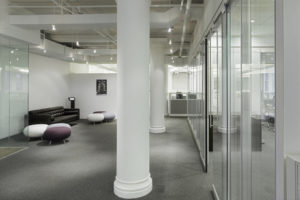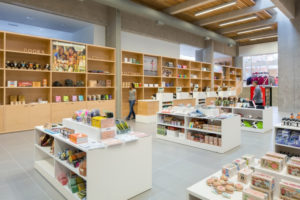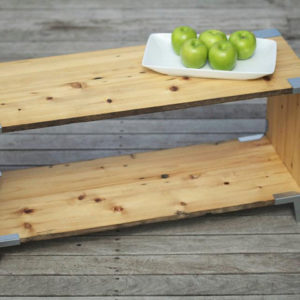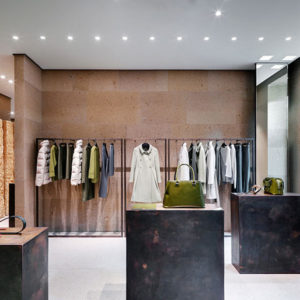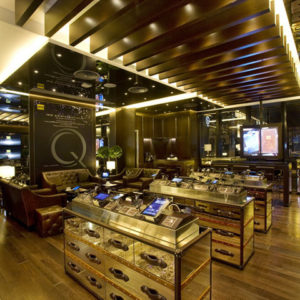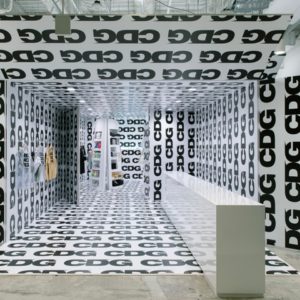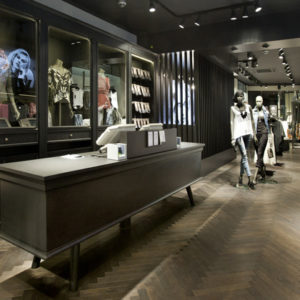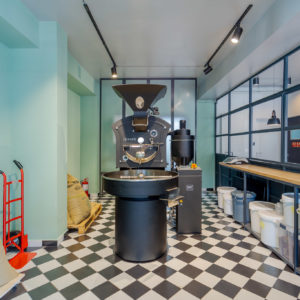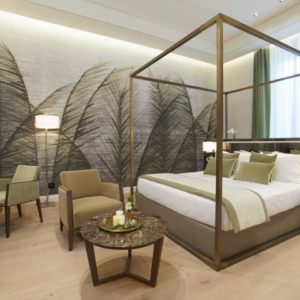
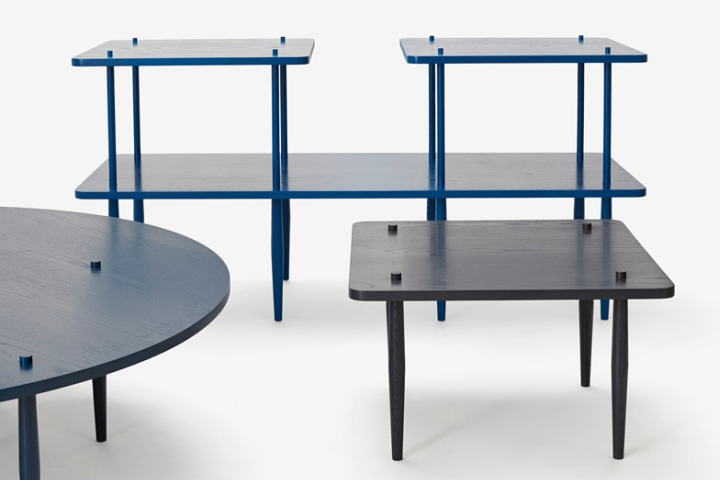

The L Series by New York studio Assembly Designis a modular collection of shelves and tables supported by poles that poke up through the horizontal surfaces.
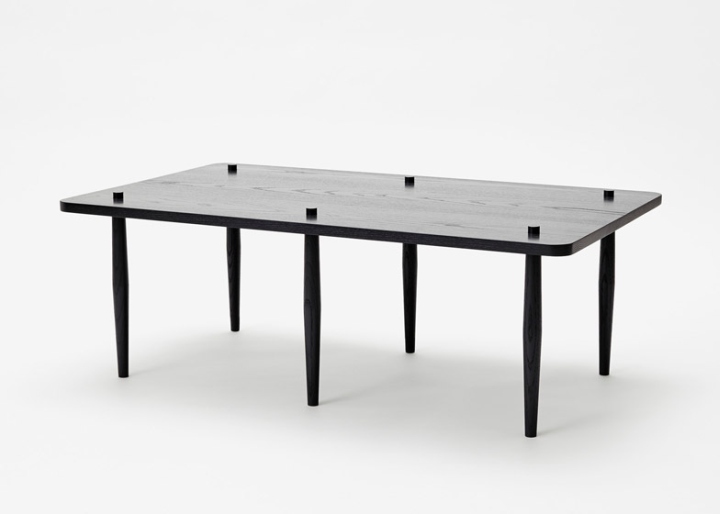
The range of stained-wood furniture currently comprises three tables – L2, L3 and L8C – and a shelving system named L4.2-2. But each can be adapted to suit individual requirements. “This collection is extremely customisable – especially in terms of finish and configuration,” Assembly Design co-founder Pete Oyler told Dezeen. “Our hope is that people will find inspiration in the versions we have produced thus far and respond to the vast possibilities to design a piece, or group of pieces, that best complements their home, office or store.”
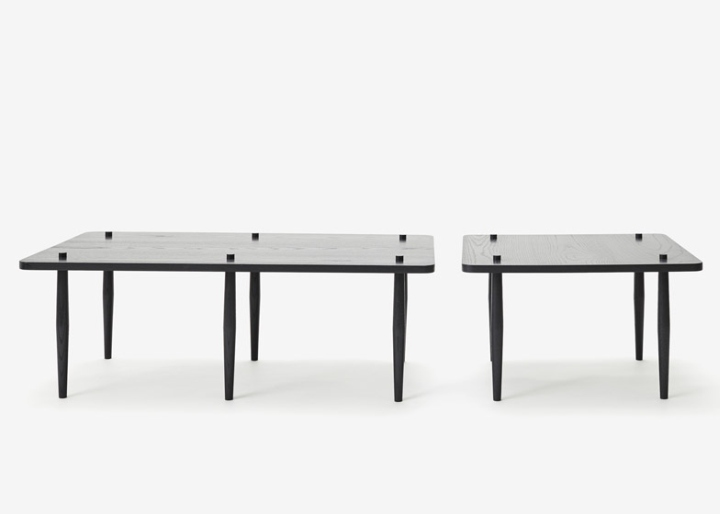
● L2 is a side table with four 36-centimetre-high legs while L3 follows the same form, but is double the length with six legs.
● L4.2-2 is even longer and has eight legs that extend up through a low surface to a height of 68 centimetres. The legs support a further two side-by-side table tops, creating a shelving system which resembles a double-decker table.
● Finally L8C is a circular table with eight legs arranged at the intersecting points of a grid.

“The collection was inspired by classic wood joinery, mid 20th century turned legs, and the concept of modularity,” said Oyler. “Our aim was to create a furniture system that was versatile, designed for both batch and mass production, and had a distinct and vibrant character. Given how streamlined the overall geometries are we wanted to draw attention to what is at the core of this system – the legs,” he added.
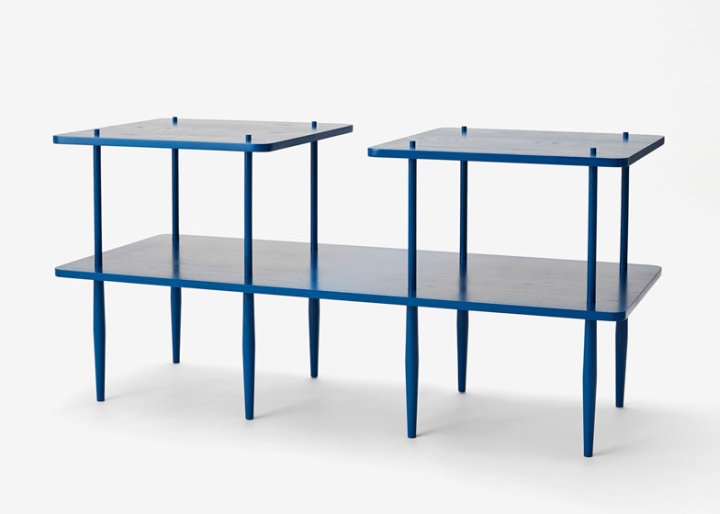
The legs are turned using computer numerically controlled (CNC) cutting technology from lacquered ash, natural walnut or white oak, and joined to the tabletops using through-tenon joints, which mean the legs protrude through the table’s surface. “This method of joinery is ages old and as simple as it is elegant,” added Oyler. “The L Series champions classic wood joinery in the form of strong legs and proud shoulders.”
Design: Assembly Design
Photography: Kendall Mills
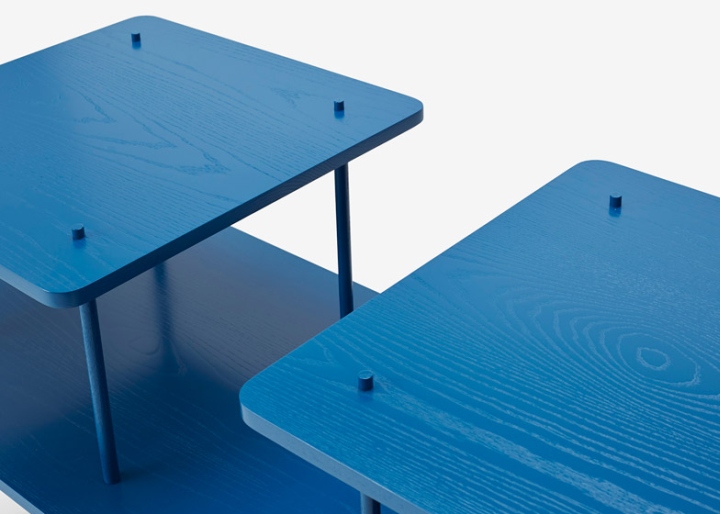
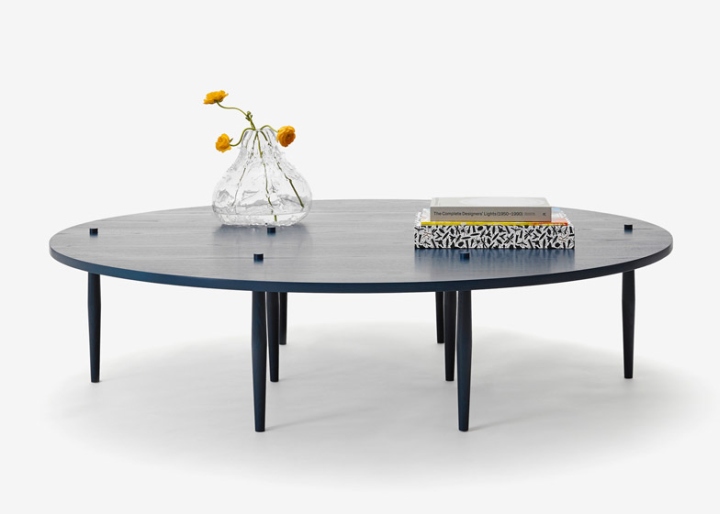
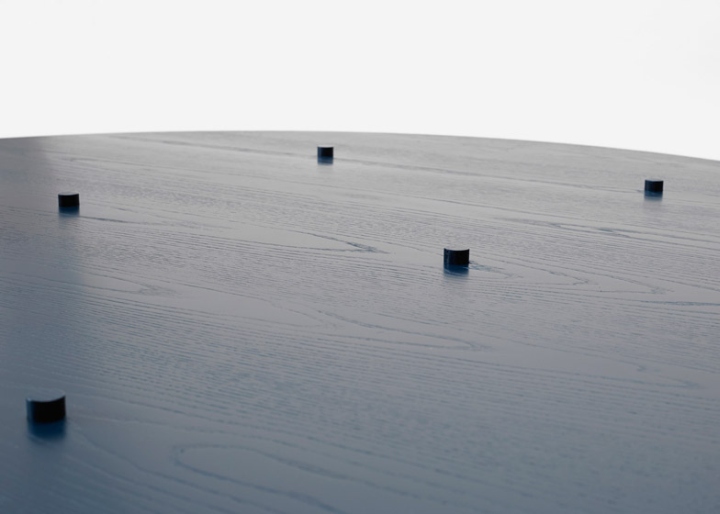
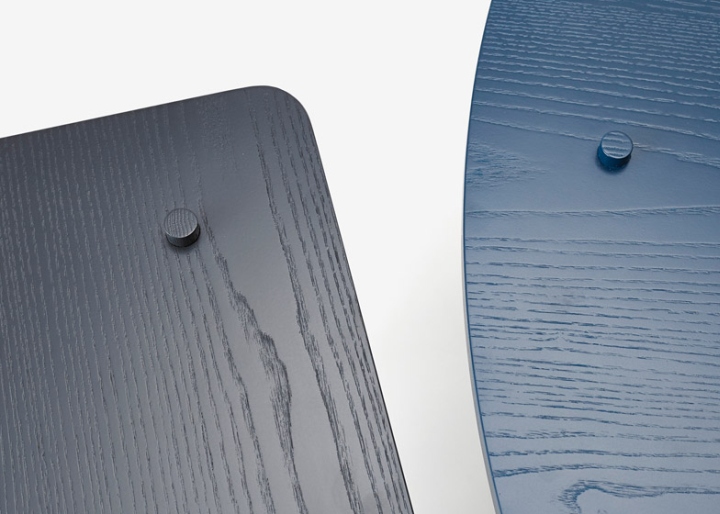
via Dezeen








Add to collection
